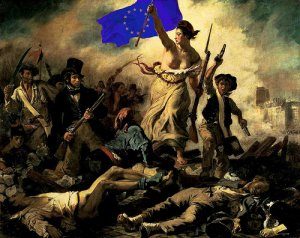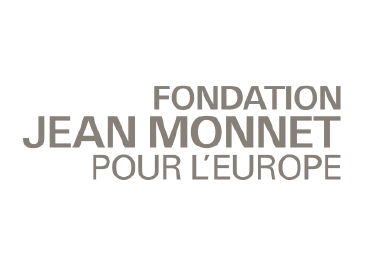[:en] Volt, a transnational political party that is running in different European countries for the elections next May, recently published a call entitled “Abaissons les barrières à la démocratie pour permettre la représentation de tous les citoyens” (Let’s lower the barriers to democracy to allow the representation of all citizens) (in MediaPart, 25/04/2019), co-signed by the EFP, PACE, European Democracy Lab, Europa Nova, the pirate party and others.
Volt, a transnational political party that is running in different European countries for the elections next May, recently published a call entitled “Abaissons les barrières à la démocratie pour permettre la représentation de tous les citoyens” (Let’s lower the barriers to democracy to allow the representation of all citizens) (in MediaPart, 25/04/2019), co-signed by the EFP, PACE, European Democracy Lab, Europa Nova, the pirate party and others.
Of course we support such an initiative, France is, along with Italy, the most undemocratic country.
BUT! for the European elections to be truly European and democratic there must be a single procedure that puts all European citizens, candidates, parties and voters on an equal footing. Otherwise we will not get out of the nationalist prism of this election, whose challenge is precisely to allow the emergence of real trans-European parties, and not just transnational ones.
In 2009 Newropeans already had (and IDE in 1989):
- denounced this inequity in an open letter in February 2009: “Pour que les élections européennes soient réellement européennes et démocratiques” and in July 2009: “La NON démocratie française“.
- published a study of all national legislation on European election voting: “European Electoral laws systems” (David Carayol, 2009)
- launched a petition, in 14 languages! “For truly European and democratic European elections“
- proposed a single European electoral law: A Newropeans‘ unique European Electoral law proposal (UEEL), 2010
If all those who are crying today about the electoral injustice in France had supported the democratic front at the time and this petition, the 2019 elections would certainly have been quite different from the democratic and trans-European perspective.
But what a pity, waiting until the day before the election (when some have already been confronted with this problem and were aware of the unfair situation in France, including the media), concocting an action well away from the eyes of other political parties and movements, particularly the pioneers of all these movements and parties – that could have given it a historical and truly trans-European weight, and finally allowing themselves to be locked into a national-national framework without bringing the European dimension to it, far away from the project of European democratisation put forward by Franck Biancheri in 1989. Three decades lost… hopefully it’s not more!
[divider][:fr] Volt, parti politique transnational qui se présente dans différents pays européens pour les élections de mai prochain a publié récemment un appel intitulé “Abaissons les barrières à la démocratie pour permettre la représentation de tous les citoyens” (MediaPart, 25/04/2019), cosigné par le PFE, PACE, European Democracy Lab, Europa Nova, le parti pirate et d’autres personnalités.
Volt, parti politique transnational qui se présente dans différents pays européens pour les élections de mai prochain a publié récemment un appel intitulé “Abaissons les barrières à la démocratie pour permettre la représentation de tous les citoyens” (MediaPart, 25/04/2019), cosigné par le PFE, PACE, European Democracy Lab, Europa Nova, le parti pirate et d’autres personnalités.
Nous soutenons bien entendu une telle initiative, la France est avec l’Italie le pays le plus antidémocratique.
MAIS! pour que les élections européennes soient vraiment européennes et démocratiques il faut une procédure unique qui mette à égalité tous les citoyens européens, candidats, partis et électeurs. Autrement nous ne sortirons pas du prisme nationaliste de ce scrutin, dont l’enjeu est justement de permettre l’émergence de vrais partis transeuropéens, et pas juste transnationaux.
En 2009 Newropeans avait déjà (et IDE en 1989):
- dénoncé cette iniquité dans une tribune ouverte de février 2009: “Pour que les élections européennes soient réellement européennes et démocratiques” et de juillet 2009: “La NON démocratie française“
- publié une étude de l’ensemble des législations nationales quant aux scrutin des élections européennes: “European Electoral laws systems” (David Carayol, 2009)
- lancé une pétition, en 14 langues !!! “Pour des élections européennes vraiment européennes et démocratiques“
- proposé une loi électorale européenne unique: Proposition Newropeans de Loi Électorale Européenne Unique (LEEU), 2010
Si tous ceux qui aujourd’hui pleurent de l’injustice électorale en France avaient à l’époque soutenu le front démocratique et cette pétition les élections 2019 auraient certainement été tout autrement démocratiques et trans-européennes.
Mais quel dommage, attendre la veille du scrutin (alors que certains ont déjà été confrontés à ce problème et connaissaient la situation inique française, y compris les médias), concocter une action bien à l’abri des regards des autres partis et mouvements politiques, notamment des pionniers de tous ces mouvements et partis trans-quelque chose, qui auraient pu lui donner un poids historique et véritablement transeuropéen, et enfin se laisser enfermer dans un cadre natio-national sans y apporter la dimension européenne, on est bien loin du projet de démocratisation européenne posé par Franck Biancheri dès 1989. Trois décennies perdues… espérons que ce ne soit pas plus!
[divider][:]





